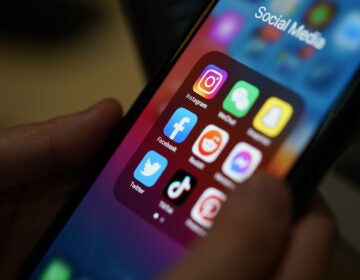Princeton student creates IPhone app that allows users to share ad blocking lists
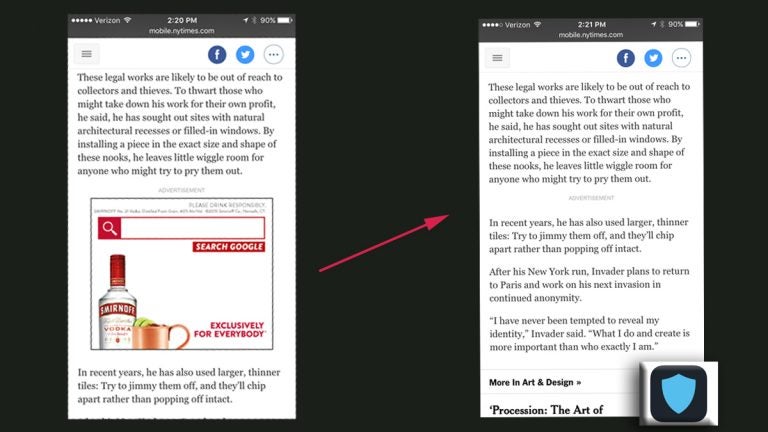
Ad blockers remove the ads on a webpage.
After Apple released iOS 9 in September, a host of new iPhone ad-blocker apps skyrocketed to the top of the App Store charts. These apps, sporting futuristic one-word names like Crystal and Purify, all blocked mobile advertising on Safari on your iPhone or IPad.
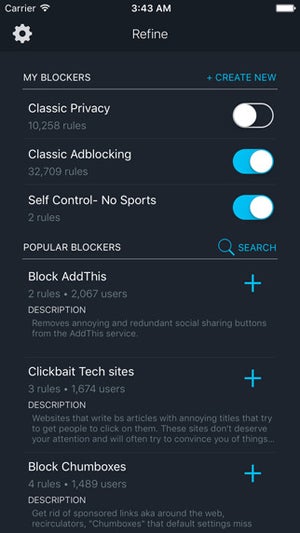 One ad blocker stands out because it features many of the customizable features that are found in the paid apps. Refine is the brainchild of 20-year old Luke Li, a junior at Princeton University. In its simplest form, Li’s app blocks mobile ads.
One ad blocker stands out because it features many of the customizable features that are found in the paid apps. Refine is the brainchild of 20-year old Luke Li, a junior at Princeton University. In its simplest form, Li’s app blocks mobile ads.
But in true geek-fashion, the app’s most unique feature is the fact that it allows its users to create and share their own rules for surfing the web. These lists can then be shared with other Refine users who can search for them on the settings page.
One user created a rule to block all images and videos, speeding up loading times. Another user decided to block sites deemed as “clickbait” such as Gawker and Business Insider, arguing in the description that “these sites don’t deserve your attention.” Using Li’s rule-making tool, users can also create whitelisting rules, a way to unblock ads from specific websites.
To date, Refine has around 23,000 users, far below the number of users of the more recognizable ad blockers. Part of the reason for Refine’s relative anonymity is the fact that the app’s interface is somewhat clunky and not so aesthetically pleasing, partially due to the complexity of the “rule” feature.
For some, it evokes the spirit of the text-centric interface of Reddit, the popular website where you vote for stories to boost their reach. David Carroll, a professor of technology and design at the New School and Parsons School of Design said “It’s kind of an interface that only a computer science major would think, ‘this is a good interface.'”
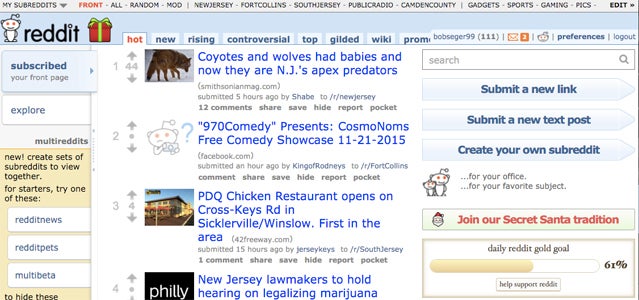
Reddit’s website
But Carroll notes that the interface is not the only feature that Refine shares in common with Reddit. “It’s also like Reddit in that people contribute into it and that powers it even more,” he said.
Ultimately, Carroll holds high praise for Li’s app, calling it “so customizable that it’s a whole other world onto itself.”
Meanwhile, the meteoric rise in the popularity of ad blockers, of which Refine is just one of many in a crowded marketplace, begs another question: are ads really that evil?
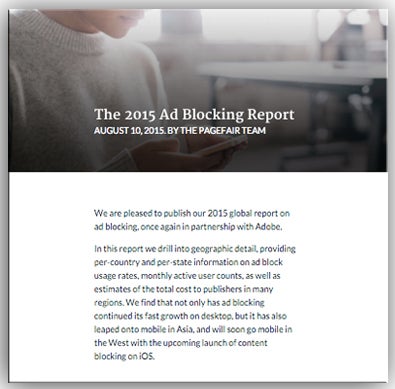 Ad blockers are hugely popular, boasting nearly 200 million worldwide, according to a study by PageFair, an Irish company that helps publishers better target their ads. Since digital advertising is a growing revenue source for all kinds of websites many people, like the founders of PageFair, see ad blockers as an existential threat to future growth of the internet.
Ad blockers are hugely popular, boasting nearly 200 million worldwide, according to a study by PageFair, an Irish company that helps publishers better target their ads. Since digital advertising is a growing revenue source for all kinds of websites many people, like the founders of PageFair, see ad blockers as an existential threat to future growth of the internet.
Li’s response is that ad blockers are a justifiable response to how distracting and intrusive ads have become.
“This is a supply and demand issue,” Li said. He sees it as the best way to send a message to advertisers and website publishers that their approach to ads isn’t working. “If people are unwilling to see your ads then you’re going to change your advertising to one that they don’t mind seeing,” he said.
Carroll, the professor at New School, said that the growth of ad blocking apps could also be backlash to consumer concerns over privacy. Advertisers increasingly show us ads based on websites that we previously viewed and Carroll said some people view that as an invasion of their privacy.
“Ad blockers are a tool that users think allows them to regain control,” Carroll said
WHYY is your source for fact-based, in-depth journalism and information. As a nonprofit organization, we rely on financial support from readers like you. Please give today.




